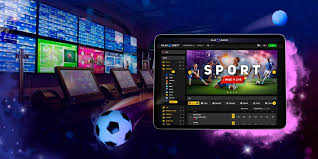
How to Take Advantage of Your Skills and Resources
In an increasingly competitive world, knowing how to capitalize on your strengths and resources is essential for success. Whether it’s in your personal life or your career, understanding how to take advantage of what you have can lead to significant opportunities. In this article, we will explore various strategies, tips, and insights on how to use your skills and resources effectively, including useful online platforms such as How to Take Advantage of Online Casino Loyalty Programs https://babu88-download.com/bn.
Recognizing Your Skills
The first step to taking advantage of your skills is recognizing what they are. Skills can range from soft skills, such as communication and teamwork, to hard skills like coding and data analysis. Here are some methods to identify your skills:
- Self-Assessment: Reflect on tasks you excel at or enjoy doing. Consider taking a skills inventory or personality test.
- Feedback from Others: Ask colleagues, friends, or mentors what they see as your strengths.
- Review Past Achievements: Look at accomplishments in your career and personal life to identify patterns in your skills.
Building on Your Strengths
Once you have identified your core skills, the next step is to hone and develop them further. Effective skill development can lead to greater opportunities and increased self-confidence. Here are some strategies:
- Continuous Learning: Engage in courses, workshops, or online tutorials to continuously enhance your skills.
- Networking: Connect with professionals in your field to share knowledge and gain insights into mastering your skills.
- Real-World Application: Practice your skills in real-world settings, such as through internships, volunteer work, or project-based tasks.
Leveraging Your Resources
Skills are only part of the equation; resources such as time, finances, and connections also play crucial roles in your success. Here are ways to leverage these resources effectively:
- Time Management: Prioritize tasks using tools such as calendars, to-do lists, or project management software to maximize your productivity.
- Financial Resources: Invest in your professional growth by budget management and setting aside funds for courses, books, or conferences that can enhance your skills.
- Networking Connections: Build and maintain a network of contacts who can provide guidance, opportunities, or insights into your industry.

Setting Goals
Setting clear, attainable goals is essential in utilizing your skills and resources effectively. Use the SMART criteria (Specific, Measurable, Achievable, Relevant, Time-Bound) to create your goals:
- Specific: Define your goals clearly. (e.g., “I want to learn Python for data analysis.”)
- Measurable: Determine how you will measure your progress. (e.g., “I will complete an online Python course by the end of the month.”)
- Achievable: Set realistic goals that you can achieve within your capacity. (e.g., “I will dedicate 5 hours a week to learning Python.”)
- Relevant: Ensure that your goals align with your larger career or personal objectives.
- Time-Bound: Set a deadline for your goals to create a sense of urgency. (e.g., “I will complete my Python course by December 31.”)
Embracing Technology
In today’s digital age, technology offers vast resources to enhance your skills and streamline processes. Here are ways to embrace technology:
- Online Learning Platforms: Utilize resources like Coursera, Udemy, or LinkedIn Learning to enhance your skill set.
- Productivity Apps: Use applications like Trello, Asana, or Notion to organize tasks and enhance your efficiency.
- Professional Networking: Leverage platforms like LinkedIn to connect with professionals, join industry groups, and share knowledge.
Seeking Mentorship
Finding a mentor can significantly accelerate your growth. Mentors can provide guidance, share their experiences, and open doors to new opportunities. Here’s how to seek mentorship:
- Identify Potential Mentors: Look for leaders in your field whose skills or experiences resonate with you.
- Approaching a Mentor: Be respectful and straightforward in your approach. Express your interest in their work and how you believe they could assist you in your growth.
- Establishing a Mentorship Relationship: Be open and willing to learn. Show appreciation for their time and advice, and keep them updated on your progress.
Staying Adaptable
The ability to adapt is crucial in a rapidly changing world. Be willing to reassess and pivot based on new information, opportunities, or changes in your interests. Here are some tips for staying adaptable:
- Stay Informed: Keep up with industry trends and developments to foresee potential changes that may impact your skills or field.
- Embrace Change: View change as an opportunity for growth rather than a setback.
- Seek Feedback: Regularly ask for feedback from peers and mentors to gain insights into areas you may need to adjust.
Conclusion
Taking advantage of your skills and resources is an ongoing journey that requires introspection, goal-setting, and adaptability. By recognizing your skills, building on them, leveraging your resources, setting clear goals, embracing technology, seeking mentorship, and staying adaptable, you can create a solid foundation for personal and professional success. Remember, the key is to take proactive steps every day to maximize your potential and seize opportunities as they arise.